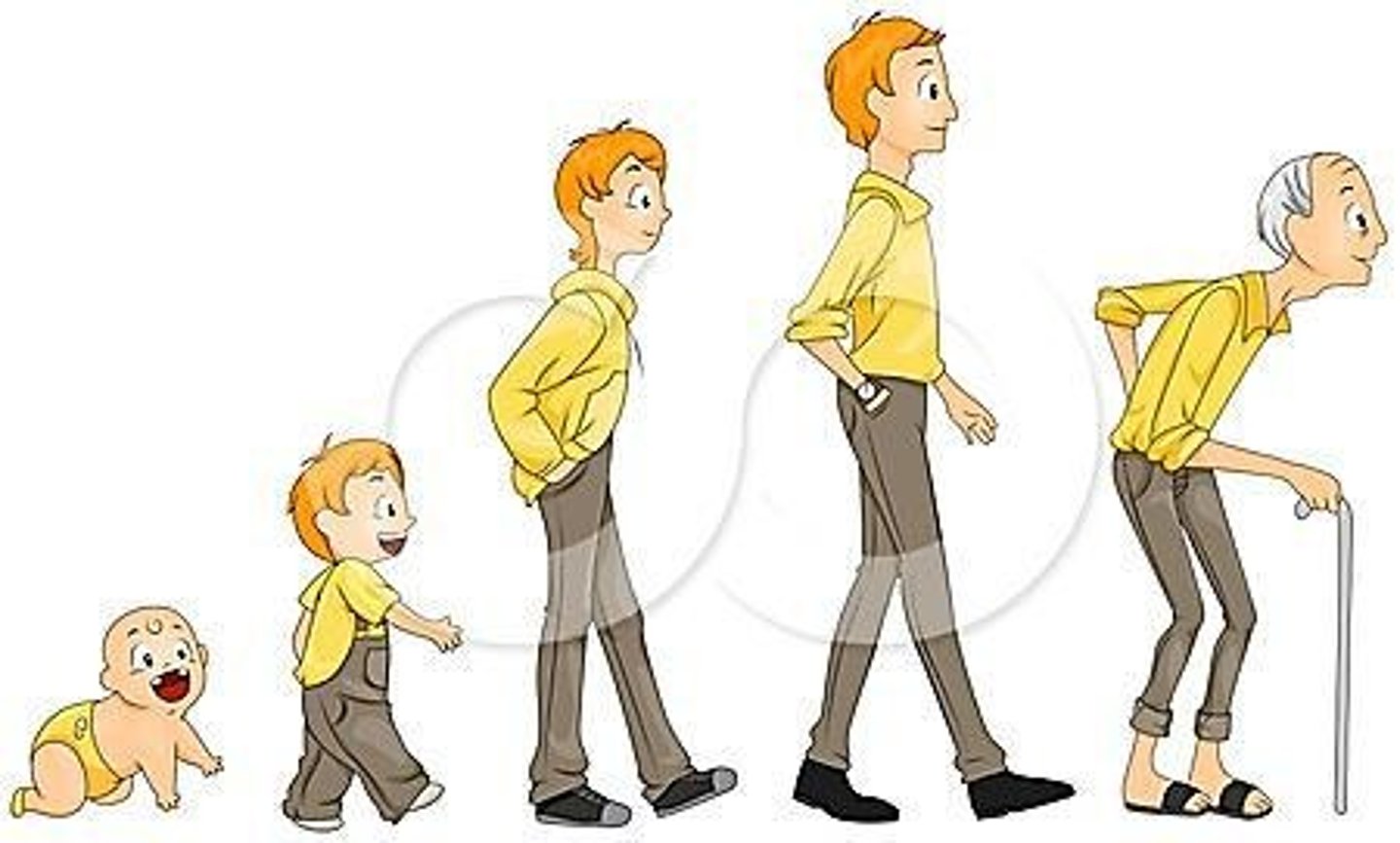HHII Theory: Young Adults
1/43
There's no tags or description
Looks like no tags are added yet.
Name | Mastery | Learn | Test | Matching | Spaced | Call with Kai |
|---|
No analytics yet
Send a link to your students to track their progress
44 Terms
Transition
a change or shift from one state, subject, place, etc. to another

Milestone
a significant point in development
Rites of Passage
a ritual, event, or experience that marks or constitutes a major milestone or change in a person's life
Biological-related Rites of Passage
birth, wedding, retirement, funerals
Religious-related Rites of Passage
Baptism, Bar Mitzvah
Cultural-related Rites of Passage
Bull jumping - manhood (Africa); Quinceneara - womanhood (Mexico); adolescent circumcision
Others Rites of Passage
getting a driver's licence, "sweet 16"
Young adulthood
18 - 34 years of age
Physical Development: Young Adult
By 20, physical growth mostly complete.
Physical abilities
are in peak condition.
Hearing and visual acuity
at the highest/best - decline ~age 40.
Full adult stature in men
is reached at 18; in women at 16.
Optimal muscle strength
at ages 25-30, then declines 10% from age 30-60.
Manual dexterity
peaks, declines in mid-30s.
Experience severe illness
less - generally the healthiest time of life.
Cognitive Development: Young Adult
Intellectual processes are at their peak in early adulthood.
Executive Decision Making
becomes more developed.
Greater complexity of thinking
(more sophisticated).
Calculation of risks vs. rewards
is a key cognitive skill.
Prioritization, self correction, long term planning
are enhanced in young adulthood.
Moral Development: Young Adult
Those who successfully mastered previous cognitive, social and moral stages usually able to recognize or use principled reasoning.
Kohlberg's theory
young adults are at the post-conventional level.
Principled reasoning
able to define principles about rights in terms of self-chosen principles.
Weighing interests
weighs person's interests vs. the rules/expectations of others.
Moral Development
Young adults who have mastered previous cognitive, social, and moral stages are usually able to recognize or use principled reasoning.
Kohlberg's Theory
Young adults operate at the post-conventional level, able to differentiate self from the rules/expectations of others.
Principled Reasoning
The ability to define principles about rights in terms of self-chosen principles and weigh a person's interests against society's needs.
Psychosocial Development
Erickson's stage of Intimacy vs Isolation, where forming intimate, loving, mutual relationships is crucial.
Success in Relationships
Leads to strong relationships, while failure results in loneliness and isolation.
Emotional Health
Related to the ability to resolve personal and social tasks.
Career Counseling
May benefit young adults, especially as trends show more women working while pregnant and men more aware of parental responsibilities.
Childbearing Family Changes
Pregnant women undergo physical, cognitive, and psychosocial changes.
Cognitive Changes in Pregnancy
Includes temporary sensory changes and educational needs.
Psychosocial Changes in Pregnancy
Related to body image, role changes, sexuality, coping mechanisms, and stresses.
Health Risks for Young Adults
Includes STIs/STDs, violence, substance use, depression, suicide, unwanted pregnancies, and occupational/environmental risk factors.
Lifestyle Concerns
Includes smoking, stress, exercise patterns, personal hygiene, familial history, and infertility.
Leading Causes of Death
Includes suicide, self-inflicted injuries, and unintentional injuries.
Health Behavior Trends
Young adults are less likely to eat healthy, be physically active, seek care, and more likely to use social media for health questions.
Preventive Health Concerns
Includes developing behaviors that promote a healthy lifestyle and decreasing the incidence of accidents, injuries, and acts of violence.
WHO Family Planning/Contraception
Guidelines aimed at improving health outcomes for young adults.
Challenges of Young Adults
Includes adjusting to roles and responsibilities of adulthood, intellectual maturity, and moral development.
Nurse's Role
Includes prolonging optimal physical functioning, developing emotional, mental, and social potential, and encouraging proper health habits.
Health Promotion Intervention
Stresses the importance of health promotion during the prenatal period for both woman and fetus.
CSEP Guidelines
24-hour movement activity guidelines for individuals aged 17-64 years.